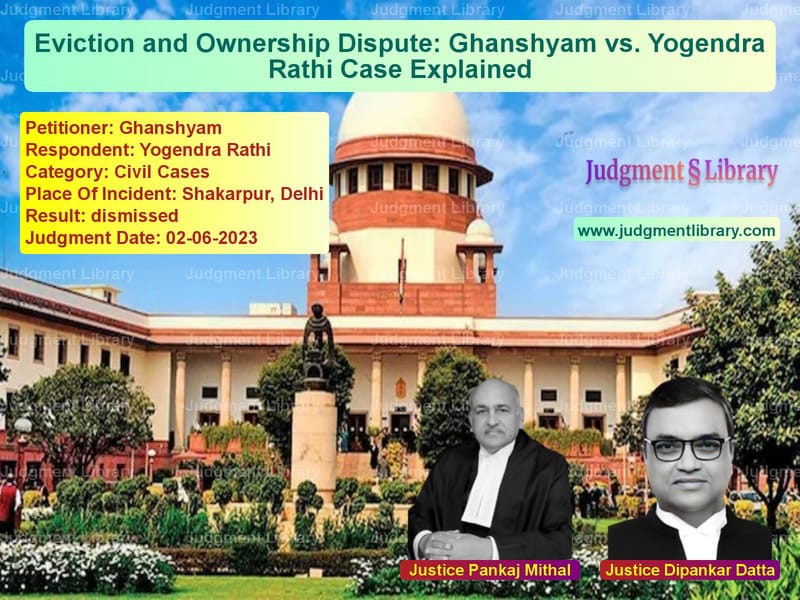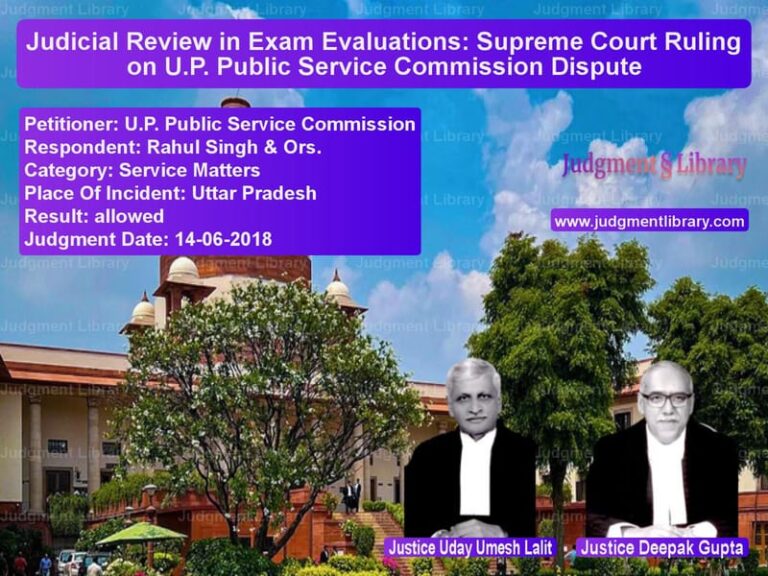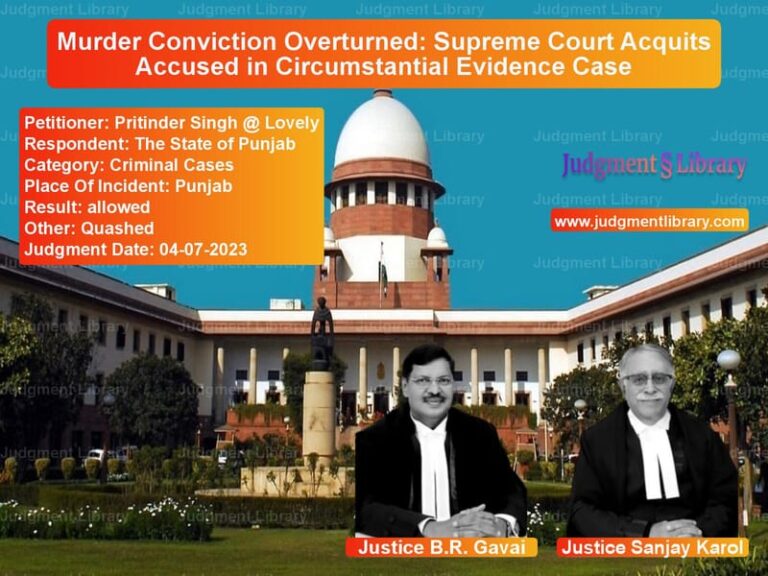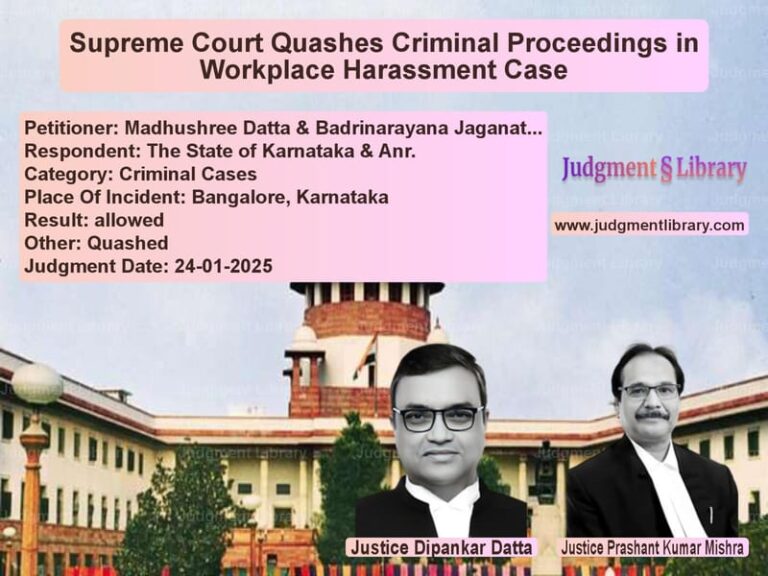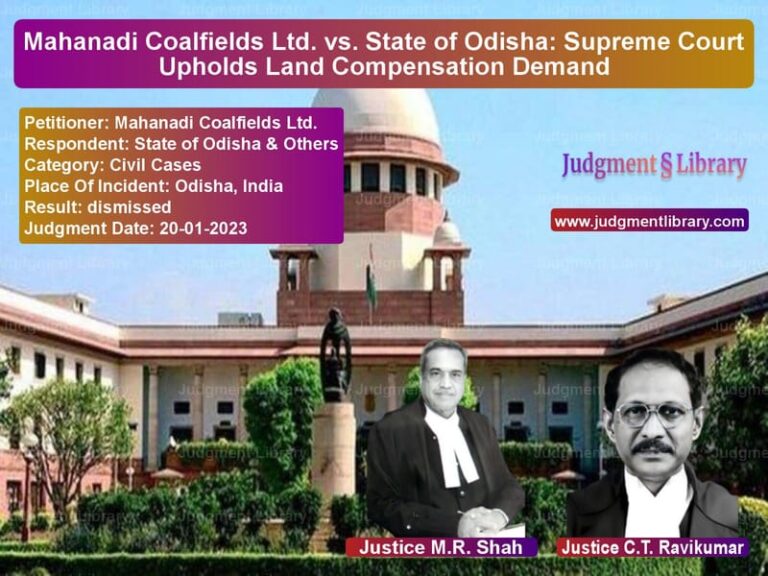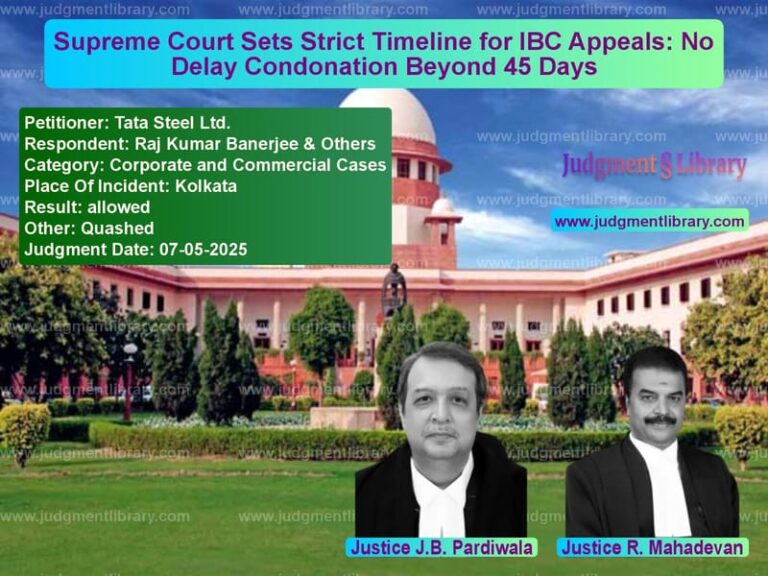Eviction and Ownership Dispute: Ghanshyam vs. Yogendra Rathi Case Explained
The case of Ghanshyam vs. Yogendra Rathi revolved around a property dispute in J.J. Colony, Shakarpur, Delhi, concerning eviction and mesne profits. The Supreme Court, in its judgment on June 2, 2023, upheld the decisions of the lower courts, dismissing the appeal filed by Ghanshyam.
The dispute arose from an agreement to sell executed on April 10, 2002, where the plaintiff-respondent, Yogendra Rathi, claimed ownership of the suit premises through various documents, including a power of attorney, a memo of possession, and a receipt of payment for the sale consideration. He alleged that he had allowed the defendant-appellant, Ghanshyam, to stay in the property as a licensee for three months, which had expired. However, the appellant refused to vacate.
Key Issues in the Case
- Whether the plaintiff-respondent had valid ownership rights over the disputed property.
- Whether the agreement to sell, power of attorney, and possession memo conferred title.
- Whether the defendant-appellant’s claim that the documents were manipulated held merit.
- The entitlement of the plaintiff-respondent to eviction and mesne profits.
Supreme Court’s Analysis and Judgment
On the Validity of Ownership
The Court held that while an agreement to sell does not constitute a transfer of ownership under Section 54 of the Transfer of Property Act, 1882, it does confer possessory rights. The Court stated:
“The agreement to sell, the payment of entire sale consideration as corroborated by the receipt, and the fact that the plaintiff-respondent was put in possession of the suit property establishes de facto possessory rights.”
The Court emphasized that such possessory rights could not be disturbed by the original owner, who had voluntarily handed over possession.
On the Defendant’s Allegations of Fraud
The defendant-appellant claimed that the agreement to sell and related documents were manipulated. However, the Court found no substantial evidence to support this assertion. It ruled:
“There is no evidence to prove that any of the above documents were obtained by misrepresentation, manipulation, or fraud.”
On the Status of Power of Attorney and Will
The Court clarified that neither a power of attorney nor a will confers immediate ownership rights. It stated:
“A power of attorney does not, in itself, transfer ownership unless followed by a sale deed. Similarly, a will only comes into effect after the testator’s death.”
On Eviction and Mesne Profits
Since the defendant-appellant’s license to stay in the property had expired, the Court ruled that he had no right to continue possession. The judgment stated:
“The defendant-appellant was merely a licensee, and his right to occupy the premises ceased after the termination of the license.”
The Court awarded mesne profits at the rate of Rs. 1,000 per month for unauthorized occupation.
Conclusion
This judgment reinforces the principle that possessory rights under an agreement to sell are legally protected. The Supreme Court upheld the lower courts’ decisions, dismissing the appeal and confirming the eviction of the appellant while awarding mesne profits to the rightful possessor.
Read also: https://judgmentlibrary.com/supreme-court-rejects-wakf-claim-over-disputed-land-in-tamil-nadu/
Petitioner Name: Ghanshyam.Respondent Name: Yogendra Rathi.Judgment By: Justice Pankaj Mithal, Justice Dipankar Datta.Place Of Incident: Shakarpur, Delhi.Judgment Date: 02-06-2023.
Don’t miss out on the full details! Download the complete judgment in PDF format below and gain valuable insights instantly!
Download Judgment: ghanshyam-vs-yogendra-rathi-supreme-court-of-india-judgment-dated-02-06-2023.pdf
Directly Download Judgment: Directly download this Judgment
See all petitions in Property Disputes
See all petitions in Landlord-Tenant Disputes
See all petitions in Specific Performance
See all petitions in Damages and Compensation
See all petitions in Judgment by Pankaj Mithal
See all petitions in Judgment by Dipankar Datta
See all petitions in dismissed
See all petitions in supreme court of India judgments June 2023
See all petitions in 2023 judgments
See all posts in Civil Cases Category
See all allowed petitions in Civil Cases Category
See all Dismissed petitions in Civil Cases Category
See all partially allowed petitions in Civil Cases Category

